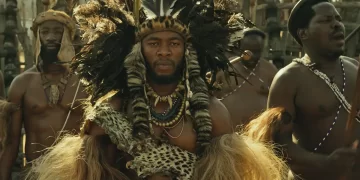While it might be unjust to use a single year as a sample size to prospect on cinematic or television output, due to the amount of time taken to work through production phases, 2023 gave us bold and daring new projects built upon the unique premise of the realisation that the art of film (and television) offers an unprecedented opportunity to explore the African story and identity.
2023 was the year of The Black Book, arguably Africa’s most expensive film yet and Nigeria’s mighty undertaking that took over Netflix globally, charting even in unexpected territories like South Korea. It was also a year of African animation revolution with the release of firsts like Disney+’s Kizazi Moto, Showmax’s Twende and Netflix’s Supa Team 4; South African erotic adaptation Fatal Seduction charmed the world in over 75 countries; the mighty Shaka iLembe roared to the screens delivering nothing short of prestige African television and then there was Spinners, the spectacular exploration of South Africa’s spinning culture and the first African series selected for competition at Canneseries.
In a year of great hits and great misses too, here are 8 of the best African TV shows and movies of 2023 (in no particular order) as chosen by six Sinema Focus critics.
Spinners (TV) – South Africa
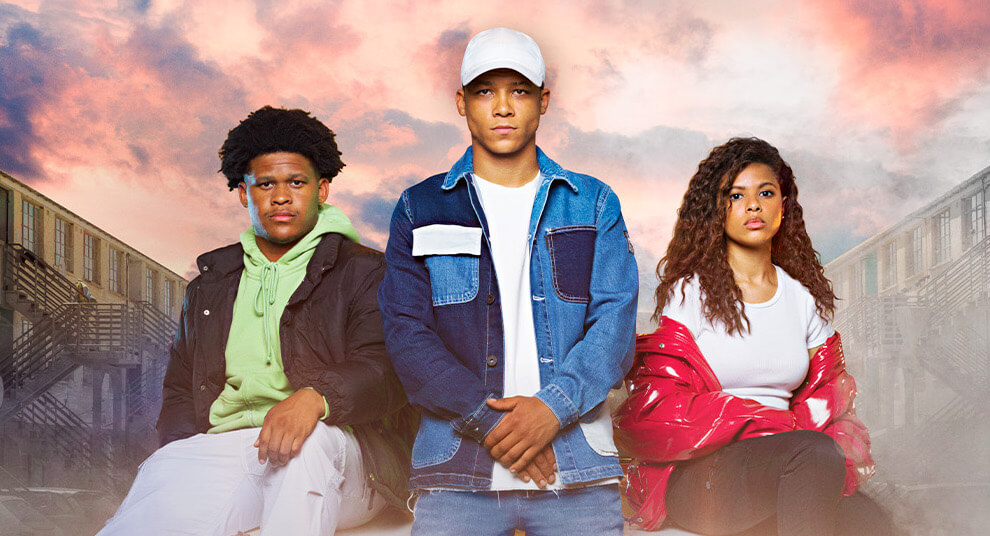
Read our ‘Spinners’ review here.
One of the standout titles for me this year has to be Spinners. In a year where Africa went all in on fast-paced crime dramas, Spinners rises above the rest with its gripping and multi-layered story set in the world spinning (South African extreme motorsport) in the Cape Flats. The series has the right blend of controlled recklessness and emotional punch for a thrilling ride that its eight episodes feel shorthanded. I even rewatched it to ensure that I wasn’t swayed by the hype, and it’s still as authentic, as mesmerising, and as engaging. Every scene in Spinners has its own gravity of consequence, every character given the care they deserve, and the editing complements its brilliance – a must-watch.
Where to watch Spinners: Showmax
– Kelvin Kariuki
Mvera (Film) – Kenya
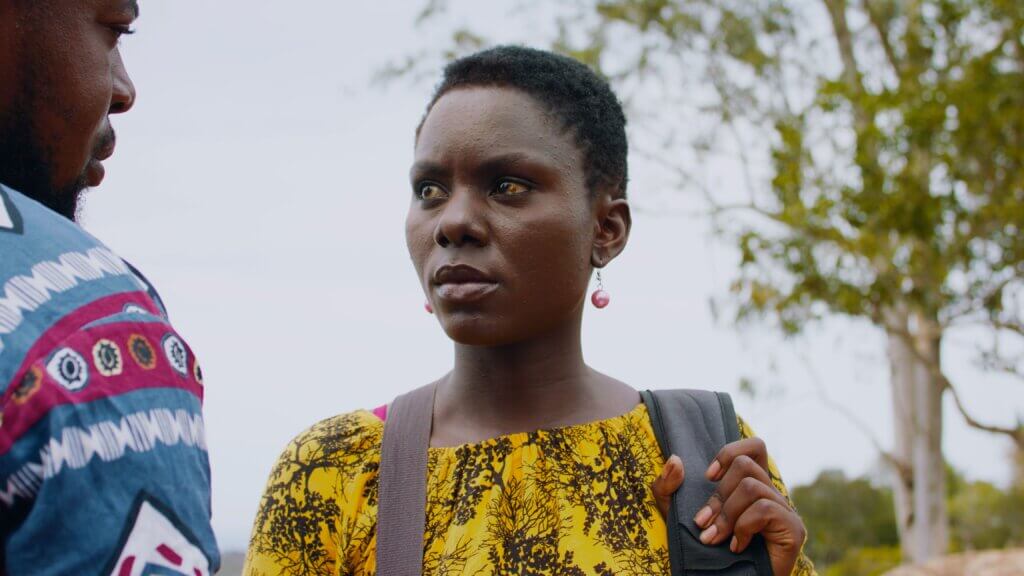
My favourite Kenyan film in 2023, and indeed, African film in general, is the coastal gem that is Mvera, as uncompromising a film as ever made in Kenya. Mvera caught me by surprise, its main sticking point to the public was that it was Kenya’s official selection for the 2024 Oscars, for which it didn’t make the shortlist announced on 21 December. I watched the film in an empty theatre, which was disappointing, but as soon as the lights went down and Daudi Anguka’s camera hijacked all of my senses, I knew I was in good hands from the first ten minutes, that first moment we encounter Linah Sande’s Mvera, a scowling scheming anti-hero, who is then forced by destiny (a motif introduced in the film’s opening narration about Mekatilili Wa Menza) to become a straight hero, granted, against her will, though we somehow never fault her for that. Like I said in my review, Sande’s performance is the strongest ever put to film in this country, and Mvera is one of the greatest films ever produced in Kenya, a declaration I am ready to defend. I’m not sure when and where it will be available to stream, but last we checked, it had been acquired for distribution by Okada Media, so it’s probably headed to Netflix in the near future.
– Churchill Osimbo
Directed by Daudi Anguka and written by Voline Ogutu and Kahindi Yaa, I must admit that Mvera is the first coastal film I have ever watched and having said this, it has definitely raised the bar quite high for all the future films from Kenya’s coastal region that I will have the privilege to view.
Never have I watched a film that transfixed me into the world of narration simply by adding so many cultural nuances to storytelling. From basics such as costume, location, music, and even the dialect the actors spoke, everything in Mvera feels so beautifully organic. The kind of dedication and hard work that Anguka put into capturing the coastal underworld and its exploitation of hopeful youth gives me so much joy that I can only wait anxiously for his next project.
– Michelle Kawira
Where to watch Mvera: Netflix
Mami Wata (Film) – Nigeria
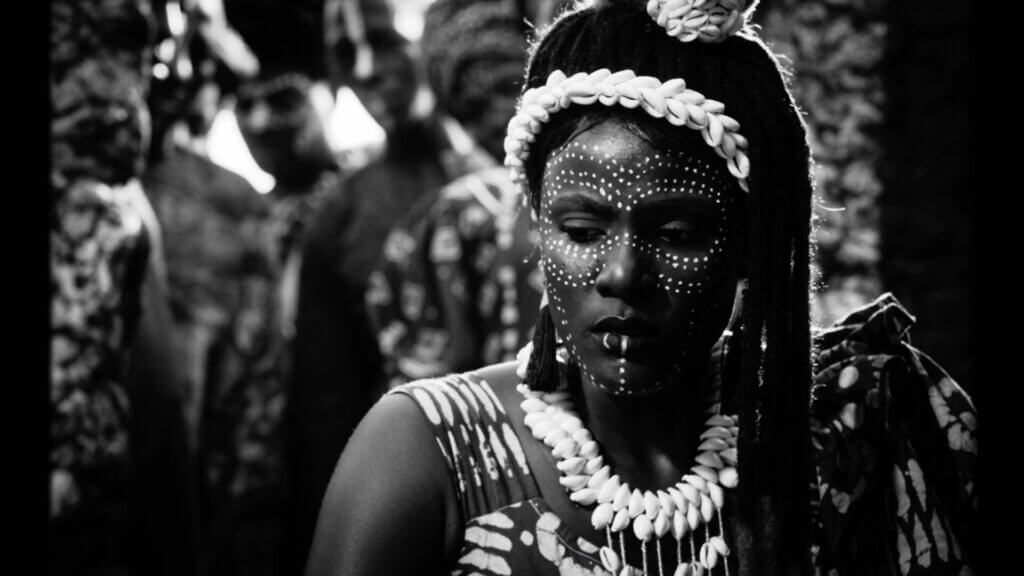
Nigerian filmmaker C.J. Obasi gave us Mami Wata, a monochromatic visual narration of the folklore of the water spirit revered in many cultures across Africa and the African diaspora, which awed critics in the continent and beyond. In the most recent praises, literary and cultural critic Carl Terver described it as “a meticulously crafted film with the soul of true filmmaking in it.” Such laudations had a hand in fuelling hope for Mami Wata at the 2024 Oscars, although to much disappointment, it did not make the Best International Feature shortlist announced on 21 December. Still, having two African films on the shortlist in lieu, Morocco’s The Mother Of All Lies and Tunisia’s Four Daughters, indicates the continent’s applaudable year in cinema.
– Frank Njugi
Shaka iLembe (TV) – South Africa
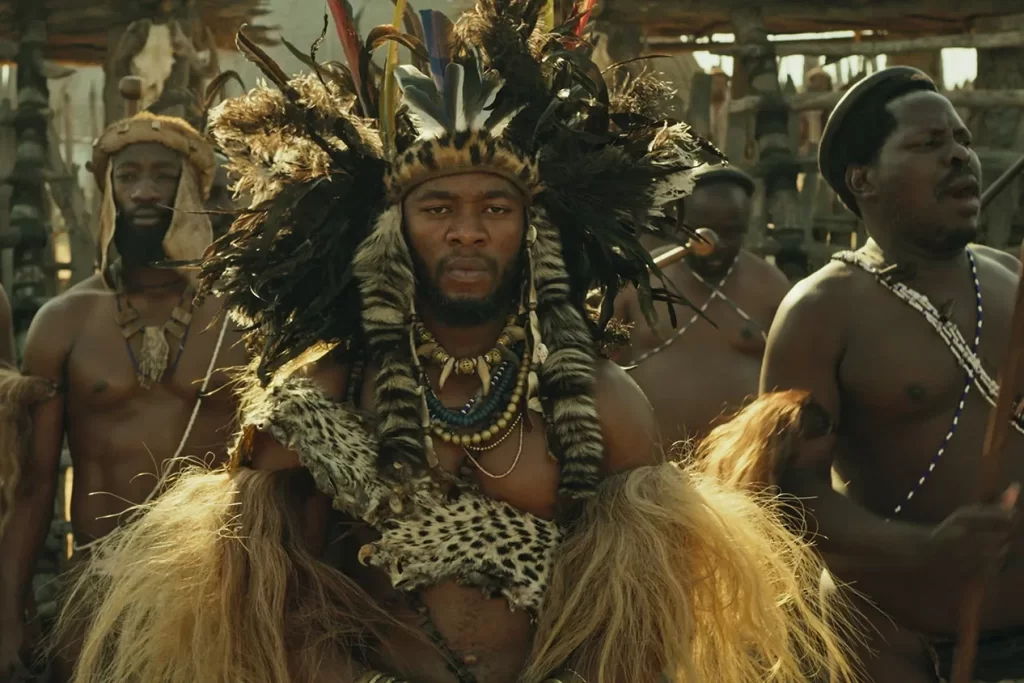
Read our ‘Shaka iLembe’ review here.
In mid-June this year, Multichoice unveiled this continent’s single most ambitious audio-visual undertaking in the form of a mythic tale chronicling the rise and the rise of a young would-be bastard, saved by the last-minute matrimony of his parents – the Zulu prince Senzangakhona and an eLangeni princess Nandi. A man of treacherous fate who would famously come to be known as Shaka Zulu. A series six years in the making, Shaka iLembe’s production is as vast and grand as the story being told demands. There are other just as mythic and fraught tales that precede and run concurrently to that of Shaka, such as one of a royal prince being betrayed by his father, the king, and his younger brother, then is sold to Portuguese slavery, struggles for a couple of episodes to ultimately make a biblically heroic return. Watching this show, I kept thinking of the phrase ‘anecdotes of destiny.’ That is what Shaka ilembe is: anecdotes of destiny.
Where to watch Shaka iLembe: Showmax
– Churchill Osimbo
Shimoni (Film) – Kenya
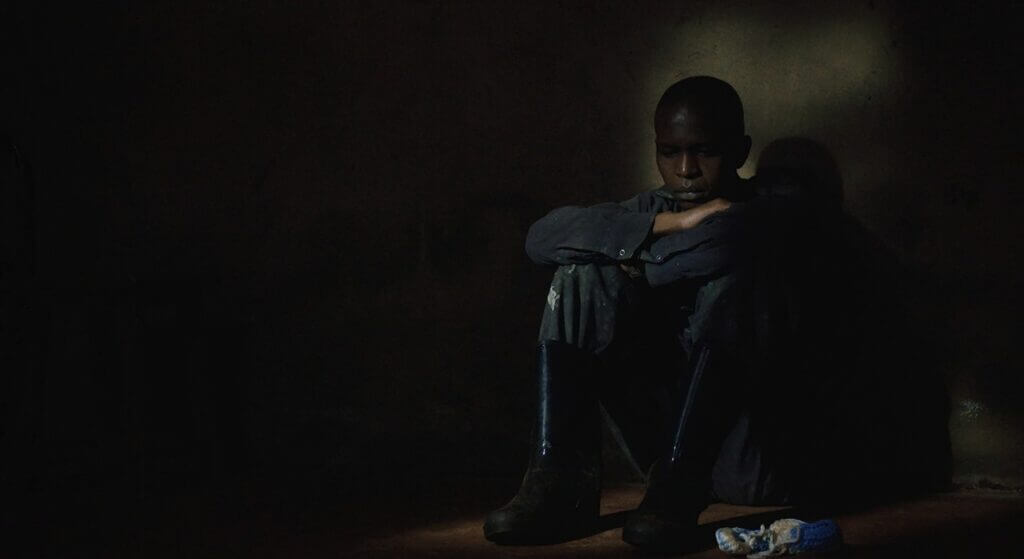
Read our ‘Shimoni’ review here.
While the film was released in 2022 for its international festival run, Shimoni only made its way to Kenya in 2023. Directed by Angela Wamai and starring Justin Mirichii, it’s one of the most beautiful pieces of Kenyan cinema I have ever seen. This movie is seminal and revolutionary in many ways: first, the fact that it’s Wamai’s first movie blows my mind. Second, we have seen Mirichii on our screens before, but never like this. And lastly, that weighty, bulky topic of redemption, rehabilitation, of the darkest parts of human nature; somehow, Shimoni manages to craft the weight of it into an elegance that is sorrowful, sharp, and deeply watchable. I loved this film, and I think it should have represented Kenya at the Oscars, but even without the bias of award movies, it will still go far. Everyone should watch this when it’s finally made available to stream or if it ever makes its way back to the cinemas.
– Abigail Arunga
I did not know what to expect going in for Shimoni; I was there to see my classmate on her big screen debut. However, I found a world so gravely constructed; the Kikuyu tongue in the film felt surreal to hear. With Shimoni, Angela Wamai captures the harrowing and unsettling chill of deconstructing a broken character, producing an unsettling yet familiar brilliant film. For her first film, and coming out from the editor’s chair to write and direct, her eye for detail is so tuned I still have a frame of eerie crows standing over a dirty wall plastered in my mind, a sight I have seen so many times before upcountry, but never from another person’s eye. This film is littered with so many similar feelings; it is virtually unforgettable for me.
– Kelvin Kariuki
Shimoni boldly tells a narrative that is far from the norm. It doesn’t shy away from holding up a mirror to society as it addresses our prejudices against ex-convicts and its toll on mental health.
It’s beautiful to see great filmmaking in handling such a delicate topic. Right from how well the story is written, the excellent technical work (cinematography, sound, editing, directing) and the exceptional acting by its lead, Justin Mirichii. It’s no surprise that Shimoni has garnered much global recognition and has made its way into my personal hall of fame as one of our best homegrown stories yet.
– Michelle Kawira
Kizazi Moto: Generation Fire (Film anthology) – Kenya, Egypt, South Africa, Nigeria, Uganda and Zimbabwe
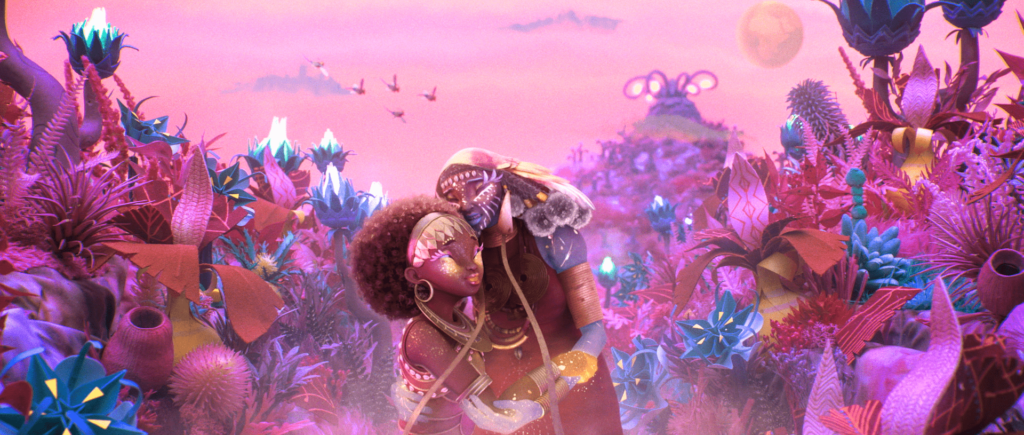
Disney Plus’ animated short film anthology Kizazi Moto, executive-produced by Spiderman: Into The Spiderverse’s co-director Peter Ramsey, is another best of the year for me. Sometimes, it’s hard to whittle down favourites when trying to come up with a Best Of list. Fortunately, the problem is not so much finding favourites but which one to pick. I love the pan-African appeal of Kizazi Moto and the fact that it’s a great collection of stories that are beautifully and diversely drawn from across the continent, with different styles and artists just showing out. Ng’endo Mukii ably represents Kenya with her short film Enkai, starring Sheila Munyiva and Stycie Waweru. Above all, I love what Kizazi Moto means for animation and storytelling in the continent: so much work is going into our industry after so long, and it shows.
Where to watch Kizazi Moto: Disney+ which in Africa, is only available in South Africa and four countries in North Africa
– Abigail Arunga
Milisuthando (Film) – South Africa
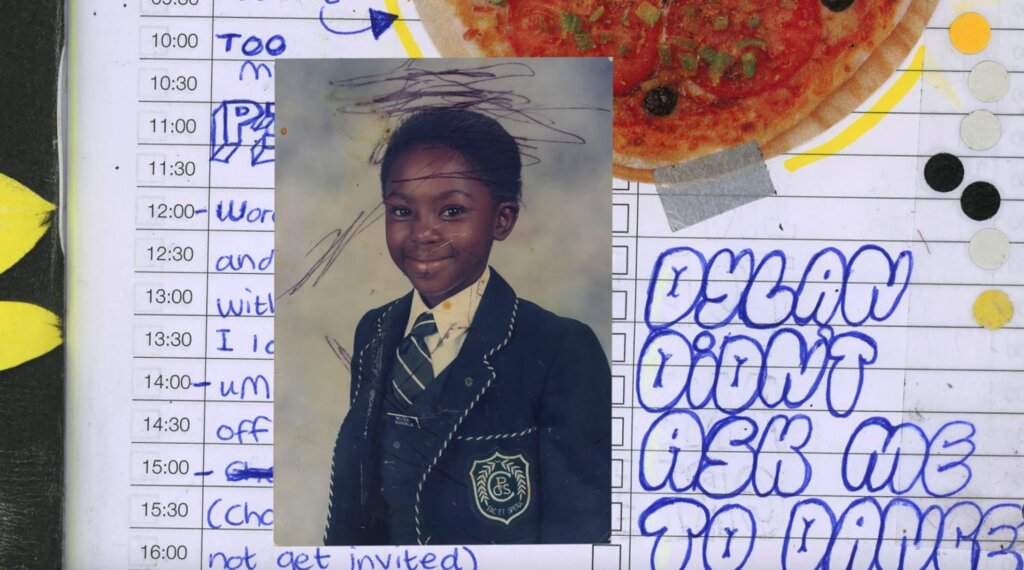
2023 has been a mixed bag, a cinematic feast with some of the decade’s finest films gracing screens worldwide, yet an undeniable turmoil continues to churn within the global political landscape. Enter South Africa’s Milisuthando, a documentary that intriguingly preempts this by not gazing into the future but instead fixing its lens on the past. It offers a unique perspective on how occupation and apartheid truly functioned, weaving together excellent use of archived footage and the compelling narration of Milisuthando Bongela to expose how the apartheid regime intentionally kept certain people in the dark about the nation’s inner workings. The current cultural reputation of South Africa paints an inspirational picture, blending Nelson Mandela’s resilience with F. W. de Klerk’s apparent generosity, triumphing over a nameless, faceless evil that held the nation captive for far too long. Milisuthando challenges this narrative by injecting specificity, shedding light on the little-known fact that the Apartheid regime birthed a pseudo-independent state—the Republic of Transkei in the mid-1970s, a hacky solution to deflect mounting criticism. Whether intended or not by Bongela, the film subtly suggests that apartheid and its tactics prey on the myopia of personal experiences.
– Fred Onyango
The Queenstown Kings (Film) – South Africa
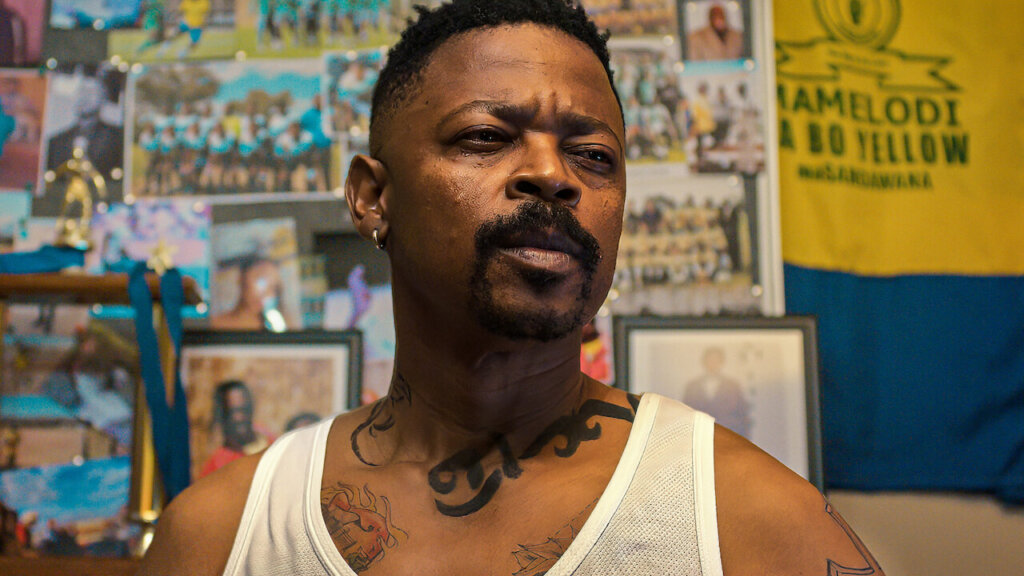
This is the year that Enhle Mbali Mlotshwaa as Xoliswa in Netflix’s The Queenstown Kings, gave us this memorable phrase: “How would I be if I held a grudge. My heart would go cold. And then how would I be able to love ?”, mirroring how African filmmakers might have finally realised the marvel of making a film not only the exploration of mundane real-life problems but also of transcendent subject matters alongside it as well.
The Queenstown Kings is a film about grudges: the protagonist’s grudge against his father, his father’s grudge against his hometown and late father, and also the protagonist’s grudge against his rural home of Queenstown and how it’s washed up local team’s mediocrity stands in-between him and his dream of continuing the family legacy and playing for Bafana ba Style (Mamelodi Sundowns FC). Through the beautiful game of football, whose exploration in film might have become trite in recent times, director Jahmil X.T Qubeka presents an imperially effortless look into the intricacies of family dynamics, fuelling the belief of the game as one with the ability to bring communities together, or in this case family, through fanhood and passion for it.
– Frank Njugi
Where to watch The Queenstown Kings: Netflix
Enjoyed this article?
To receive the latest updates from Sinema Focus directly to your inbox, subscribe now.



